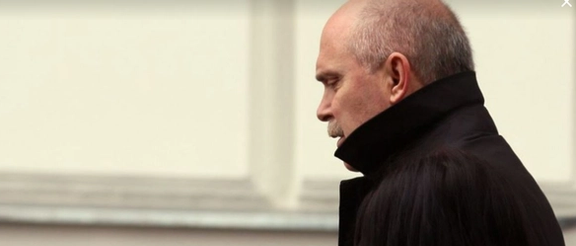From Khalilzad to Sinirlioglu; What Lies Behind the Closed Doors?

There are no updates on UN Special Coordinator Feridun Sinirlioglu’s activities, even a month after the Turkish diplomat’s appointment to the role.

There are no updates on UN Special Coordinator Feridun Sinirlioglu’s activities, even a month after the Turkish diplomat’s appointment to the role.
Sinirlioglu has worked as the Minister of Foreign Affairs of Türkiye and has a track record of resolving complex negotiations such as the Turkey-Israel relations. So, it is highly unlikely that he has not taken any steps on Afghanistan’s issues as part of his mandate as the special coordinator in the past four weeks. But the question is, what is his main mission and what are the steps he will take?
Antonio Guterres, the Secretary General of the United Nations, after hosting the special representatives of the various countries involved in the affairs of Afghanistan last month in Doha, announced that the United Nations will hold another meeting for Afghanistan to coordinate the world's position towards the Taliban, and for this diplomatic coordination, he has chosen a Turkish diplomat as the special coordinator.
Choosing a master negotiator from Türkiye is very meaningful. Türkiye, under the leadership of the Islamist Justice and Development Party (AKP) of President Recep Tayyip Erdogan, has good relations with various stakeholders of the Afghan issue. These players include Iran, Russia, China, and Pakistan, the neighbouring countries of Central Asia, Afghanistan, the European Union, and the United States.
It seems that from among the 21 countries and two international organisations that sent representatives to the Doha meeting on Afghanistan, appointing a special coordinator from Turkiye is a meaningful and interesting choice.
The first mission of the UN special coordinator is to hold talks with the domestic and foreign parties that have an impact on the political destiny of the war-ravaged country.
Sinirlioglu is mandated to hear the opinions of the above 21 countries about the solutions ahead for Afghanistan. Therefore, after establishing his office, it is expected that the Turkish diplomat visits Washington, Moscow, Beijing, and Islamabad.
The next destination for the Special Coordinator will be dealing with the current rulers of Afghanistan, and it is expected that Sinirlioglu will soon travel to Kabul or Kandahar to negotiate with the Taliban about their proposed solution to Afghanistan's humanitarian, political, and security crises.
However, in order to reach a lasting solution for Afghanistan, there are two other players – the non-Taliban politicians and the Afghan civil society groups. Without including them in the negotiation and dialogue process, the United Nations’ efforts will most likely fail.
The political parties that laid their arms and joined the state-building process in 2001 and onwards have been major players in the democratic constitutional order of Afghanistan over the last two decades, and apart from the love and hatred towards these parties, they continue to be regarded as major players in Afghanistan issues. These parties and individuals include important political figures who stayed in Kabul after the fall of Afghanistan, such as Hamid Karzai, Abdullah Abdullah, and Gulbuddin Hekmatyar, and the other players who reside outside Afghanistan, including the Supreme Council of National Resistance for the Salvation of Afghanistan, the National Resistance Front, the former cabinet ministers, Rahmatullah Nabil’s Afghanistan National Liberty Party, and Afghanistan Freedom Front affiliated to Yasin Zia. But, the Taliban opposition has not yet been able to present a united front on the future of Afghanistan, and it is not an easy task for the UN coordinator to gather the diverse views of Afghan political players. It is likely that the UN Special Coordinator will not give much importance to the views of the politicians who have been practically pushed out of the Afghan political spectrum.
However, the fourth major player in the complicated Afghan calculus are women, civil society, and the second generation of Afghan politicians who have emerged in the democratic constitutional order in Afghanistan. These forces have proved their power to mobilise domestically and internationally, and in the two years of Taliban reign in Afghanistan, they have been able to raise their voices in the capitals of different countries against the Taliban's anti-women and monopolistic policies and practices. Diplomats of major players who give high importance to their domestic public opinion, cannot easily ignore this major player and groups of Afghans. At the same time, it is undoubtedly critical and vital for Sinirlioglu to reflect the opinions of these politicians, and groups during his mission on Afghanistan.
According to media reports, the Turkish diplomat has six months to collect all these opinions and submit his recommendations to the UN Secretary-General who intends to hold another meeting on the future of Afghanistan. In addition to the second Afghanistan meeting, the decision about Afghanistan's seat in the United Nations should be determined by the time Sinirlioglu submits his report to the UN. However, with the Taliban's unwillingness in bringing reforms and meeting the human rights preconditions of the international community in Afghanistan, it seems unlikely that the Afghanistan seat in the UN will be handed over to the Taliban in 2023.
In order to address the challenges of Afghanistan, the United Nations must decide how to engage with the Taliban so that, on the one hand, the principles and values of human rights are not violated, and on the other hand, Afghanistan under the control of the Taliban does not become an isolated and forgotten country.
This is where incentives and conditions come into play. For the Taliban, the most important incentive is to build international recognition, and if the Taliban will be recognised through the negotiations of Sinirlioglu, it is more likely to reach an agreement on various issues with the Taliban.
So, it remains to be seen if Sinirlioglu's mission, will end up like that of former US special envoy for Afghanistan Zalmay Khalilzad's mission, to further strengthen the Taliban or will it break the Taliban’s monopoly of power and will pave the way for Afghanistan to become home to all Afghans.